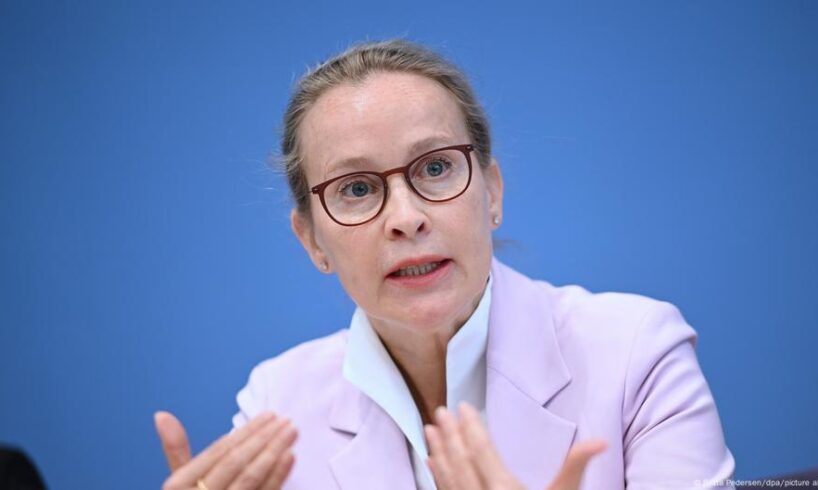
Conservative Chancellor Friedrich Merz on Friday defended Constitutional Court nominee Frauke Brosius-Gersdorf against fierce criticism from the political right.
A dispute over the nomination has deepened discord within Merz’s coalition, with center-left Social Democrats accusing conservative figures of exploiting claims about the law professor to sabotage her nomination for ideological reasons.
What’s behind the controversy?
Brosius-Gersdorf’s nomination to Germany’s top court was put on hold after a dispute over media portrayals of claims about her having “ultra-left” views and unsubstantiated plagiarism allegations.
Brosius-Gersdorf was proposed as a candidate by the center-left Social Democrats, the junior partner in government.
Merz’s conservatives unexpectedly withdrew their support, citing concerns about her views on abortion and her support for mandatory vaccination during the COVID-19 pandemic. A scheduled vote on her appointment to the Federal Constitutional Court was postponed.
However, Merz called the media scrum around the law professor in recent weeks “completely unacceptable.”
“The criticism that was expressed was at times unobjective, polemical, and in part personally insulting and degrading,” Merz said. He warned of a climate — particularly on social media — where “massive personal defamation” is no longer off-limits.
The discord between the two parties represents the first major crisis within Germany’s governing coalition, which only came to power in May.
What does the candidate herself say?
Brosius-Gersdorf said in a letter that the depiction of her character as “ultra-left” and “radical left” was “defamatory and unrealistic.”
She also accused the German media of “inaccurate and incomplete, unobjective and non-transparent” reporting.
Brosius-Gersdorf has said the regularly raised claim that she supports legalizing abortion up until birth, among other depictions of her views, was both inaccurate and disparaging.
“If you categorize my academic positions in their political breadth, a picture of the democratic center emerges,” she argued.
In an interview with the broadcaster ZDF, Brosius-Gersdorf said she would withdraw if her nomination appeared to damage the court’s reputation.
“I don’t think anyone could have imagined it in their worst dreams, this kind of politicization of a constitutional court election,” she said.
“It’s extremely dangerous, because it endangers the culture of debate, the foundations of our democracy.”
What happens now?
Brosius-Gersdorf remains a candidate for the court and could still be appointed after the Bundestag’s summer break.
Merz, from the conservative Christian Democrats, has declined to say whether the coalition would present a new candidate. He said he believed in a good solution within the coalition. “I trust that the two parliamentary groups in the Bundestag will do well,” the chancellor said.
At the same time, Merz admitted that the candidature should be better prepared next time, and that personnel proposals should be discussed earlier. But, he said, there was no time pressure and talks within the coalition were ongoing.
German Vice Chancellor Lars Klingbeil, from the Social Democrats, has urged “leadership and responsibility” from his conservative coalition partners.
However, Federal Interior Minister Alexander Dobrindt and Bavarian state premier leader Markus Söder, both from Bavaria’s conservative Christian Social Union, have both called on Brosius-Gersdorf to withdraw her candidacy.
Germany’s National Association of Local Gender Equality Officers warned against any such move, saying it would “send the wrong signal to enemies of democracy.” The organization called the pressure on the academic part of a broader antifeminist and far-right campaign.
The Karlsruhe-based Constitutional Court ensures compliance with the country’s constitution, with judges elected to 12-year terms, with an age limit of 68 years. As one of Germany’s most powerful institutions, it has regularly challenged both German and European politics.
Edited by: Rana Taha





